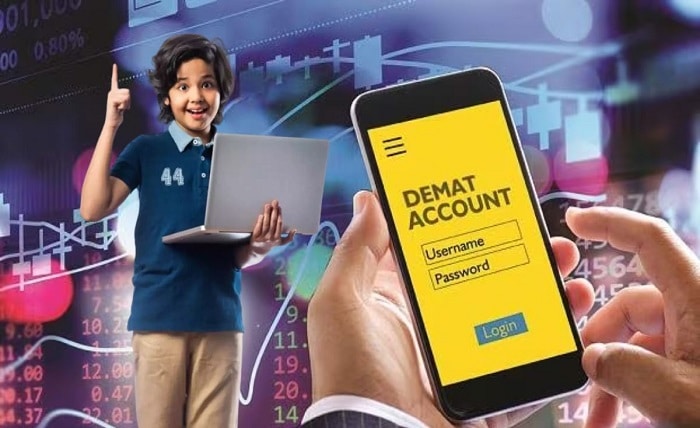The Indian stock market has undergone a significant transformation in recent years. Gone are the days of physical share certificates and crowded trading floors. Today, Demat accounts, which hold your shares electronically, have become the norm. But with this convenience comes a crucial question: can you access your Demat account from anywhere, anytime, and how safe is it? Let’s understand in this article.
Different Ways to Access Demat Account
Here are the two ways to access it:
Trading Platform / Website
Visit your Depository Participant’s (DP) website and log in to your account. The dashboard displays your Demat account status, portfolio, transactions, and other details. If you prefer to speak directly, call your DP’s customer care. Provide verification details, and they will share your account status. This allows you access to your demat from anywhere.
Mobile Trading Apps
Offered by almost all brokers, a demat account app gives you the power to manage your investments on the go. You can check your portfolio balance, monitor market movements, and even place buy or sell orders from your smartphone. This flexibility caters to a generation of tech-savvy investors who value convenience and real-time access.
Benefits of Anywhere Access of Demat Account
This accessibility comes with several advantages:
- Convenience: Imagine being able to manage your investments during your commute, lunch break, or even while traveling. Mobile apps eliminate geographical limitations and allow you to place a trade with just a few finger taps.
- Decision-making: Accessing market data in real-time empowers you to react promptly to market fluctuations. This can be helpful in volatile markets, where swift action can potentially minimize losses or maximize gains.
- 24/7 account monitoring: Keep a close eye on your portfolio 24/7. You can track your investments’ performance and adjust your investment strategy.
Security Measures To Take When Accessing Demat Account
When accessing your Demat account, primarily through mobile apps, it’s crucial to implement robust security measures to protect your investments and personal information. Here is what you can do:
- Strong Passwords: Ensure the strength of your passwords by using a combo of numbers, letters, and special characters. Avoid using easily guessable passwords like birthdays or your name.
- Dual Authentication: Use Two-Factor Authentication (2FA) to add an extra level of security. This often involves receiving an OTP on your smartphone or email address that you must enter along with your password. You may also add a security question to enhance security.
- Secure Network: Always access your Demat account using a safe and private network. Public Wi-Fi networks can be prone to hacking attempts.
- Regular Updates: Keep your trading apps and mobile operating system updated to the latest versions. These updates often have safety patches for newly discovered vulnerabilities.
- Monitoring and Alerts: Activate SMS and email alerts for transactions in your account. Also, monitor your account statements regularly for unauthorized transactions.
- Account Freezing: If you are traveling or not planning to trade for a while, consider freezing your account. This can prevent unauthorized access during periods of inactivity.
- Beware of Phishing: Be cautious of phishing attempts. Refrain from clicking on dubious links or giving out your login details when you receive unsolicited emails or messages.
- Session timeout: Most online platforms automatically log you out after a period of inactivity. If you leave your computer unattended, this prevents someone else from accessing your account.
- Encryption: Reputable depositories and brokers use high-grade encryption to safeguard your data during transmission and storage. This makes it extremely difficult for hackers to intercept sensitive information.
Conclusion
Demat accounts offer unparalleled accessibility to online investing. It allows them to manage their portfolios from anywhere in the world. While they are built with robust security measures, you, as an investor, must follow best practices to protect your investments.

